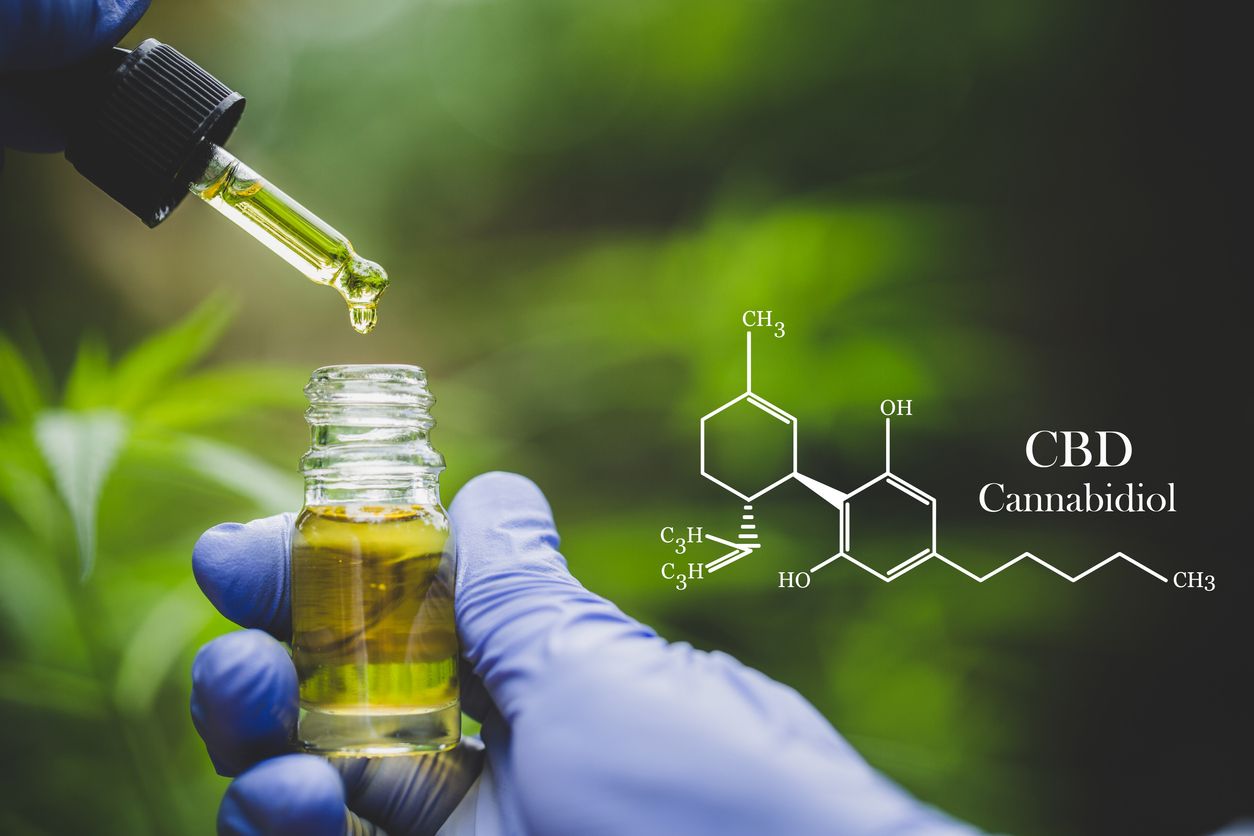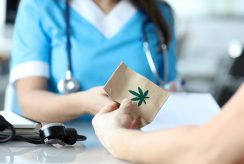Cannabidiol (CBD) is a type of natural compound called a cannabinoid. Cannabinoids are located in the cannabis plant. Cannabis plants are sometimes referred to as hemp or marijuana, depending on their level of tetrahydrocannabinol (THC), another cannabinoid.
THC is connected with a “high” CBD, nevertheless, does not cause psychoactive effects such as marijuana does.
CBD can be derived from the hemp or marijuana plant.
CBD has seen a surge in popularity in the past few decades, as new research investigates its potential health benefits. Some research indicates that CBD oil and other CBD products may be beneficial for symptoms of depression.
How does it assist?
If you are considering utilizing CBD for curative purposes, it is important to understand that the study around CBD is limited. There has been a lot of research in the previous decade, but most of them were performed using animals.
That usually means the probable benefits of CBD for depression in humans are mostly speculative right now.
However, CBD does seem to have some advantages for depression, particularly for coping:
- Anxiety
- Cognitive impairment
- Discomfort before people speaking
THC and CBD might also be helpful for conditions potentially associated with depression, such as chronic pain.

What does the research say?
Experts believe that CBD’s potential benefits for depression are linked to its positive effect on serotonin receptors within the mind.
Low serotonin levels are probably connected to depression. CBD does not necessarily boost serotonin levels, but it may affect how your brain’s chemical receptors respond to the serotonin that’s already in your system.
A 2014 animal study discovered that CBD’s impact on those receptors in the brain produced both an antidepressant and anti-anxiety consequences.
A newer 2018 review of present studies concluded that CBD has anti-stress effects, which may reduce depression related to stress.
As mentioned, this is a place that’s still being actively studied, and new research and testimonials are published each year. As researchers begin to understand CBD and its possible advantages or concerns, information about how to most effectively use the product will continue to modify.
How does it compare to antidepressant medications?
When it comes to treating depression, CBD does seem to have some benefits over antidepressant medications.
Most antidepressant drugs take weeks to begin working. However, a 2019 animal study discovered that CBD includes a quick and continuing antidepressant-like effect.
CBD may also result in fewer side effects than antidepressant drugs. Insomnia, sexual dysfunction, mood swings, and agitation are common side effects of antidepressants. CBD has not shown similar issues.
Caution
While CBD may offer some benefits over antidepressant drugs, it is not a replacement. Never stop taking prescribed medication, especially antidepressants, without talking to your healthcare provider first.
Abruptly stopping the medication that’s been prescribed to you can cause serious side effects. If you want to quit taking medication, work with your healthcare provider to think of a plan for gradually diminishing your dosage.
What if I have stress?
Depression and anxiety normally occur together, and people who are more inclined to possess the other. CBD does seem to help with both.
One study discovered that people who took 600 milligrams (mg) of CBD experienced less social anxiety than people who took a placebo. Another study utilized a smaller dose of 300 mg, which still reduced levels of anxiety.
Stress may also have a link to low serotonin, so CBD’s effect on serotonin receptors may partially explain these beneficial outcomes.
Does it cause any side effects?
Thus far, the CBD does not appear to cause many side effects. But some people may be more sensitive to it and experience:
- Nausea
- Fatigue
- Changes in weight or appetite
One study found that receiving doses of CBD-rich cannabis extracts may lead to liver toxicity in mice. But a few of the mice in that study did receive unusually high doses of CBD.
It’s tough to understand if CBD causes any long-term unwanted effects due to a scarcity of research. Thus far, experts have not identified any significant long-term risks.
Remember this doesn’t mean that there aren’t any. It only suggests that researchers haven’t encountered any yet.
In a 2017 review, the World Health Organization concluded that CBD is generally secure. They noticed that adverse effects may be caused by interactions between CBD and medications.
To minimize your chance of side effects, be sure that you talk to your healthcare provider before attempting CBD.
This is important whether you take over-the-counter drugs, herbal supplements, and prescription drugs (particularly the ones that arrive with a “grapefruit warning”). Both CBD and grapefruit have an impact on cytochromes P450 (CYPs), a family of enzymes important to drug metabolism.
How do I use it?
CBD is available in four formulations:
- Oral. Including tinctures, capsules, sprays, and oils. These combinations can be obtained as they are, or they might be used in different preparations, like smoothies or a coffee.
- Edible. Drinks and meals, for example, CBD-infused gummies, are now widely accessible.
- Vaping. Vaping using CBD oil is one way to quickly ingest the compounds. However, there’s some debate over the long-term safety of this method. In addition, it may also lead to coughing and throat irritation.
- Topical. CBD-infused beauty products, lotions, and creams are a major business at this time. These products include CBD to matters you apply directly to your skin. However, this formula is likely better for pain, not mental health uses.
Where do I buy CBD?
If you would like to try CBD, then you will want to discover a respectable seller. Hemp-derived CBD is widely available in many locations. You may even find it in some health food stores. Marijuana-derived CBD is only sold in dispensaries in states where marijuana is legal for medicinal or recreational use.
If you are considering buying CBD, start looking for manufacturers that are reliable and trustworthy. You can usually determine if a brand is reliable by assessing if they conduct third-party lab testing of their products.
It is possible to discover a number of gummies, lotions, and oils available online.
The bottom line
CBD is becoming an increasingly popular cure for a range of health issues, including depression. If you are interested in attempting CBD, speak to your physician.
While studies show the compound is generally safe, it may interact with medications. It’s a good idea to review medications and other supplements you’re taking before you start using CBD.
Can Be CBD Legal? Hemp-derived CBD goods (with less than 0.3% THC) are legal on the national level but are still prohibited under certain state laws. Marijuana-derived CBD products are illegal on the federal level but are lawful under some state laws. Assess your country’s laws and those of everywhere you travel. Keep in mind that non-invasive CBD goods are not FDA-approved, and might be inaccurately labeled.





